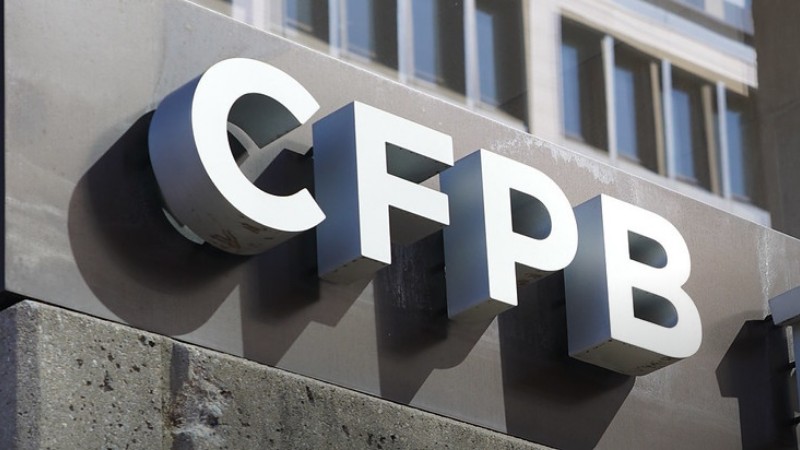The Consumer Financial Protection Bureau (CFPB) has sued Capital One Financial Corporation. The accusation? Deceptive practices around their savings account options. The main issue is how they handled interest rates for “360 Savings” accounts.
The CFPB claims this led to customers missing out on over $2 billion in interest. This lawsuit brings up big questions about how open and honest financial services really are and highlights the duties financial institutions have to their customers.
Key Takeaways
The Consumer Financial Protection Bureau (CFPB) has sued Capital One for allegedly deceptive practices around their savings account options, highlighting the importance of transparency in the financial industry.
- Capital One is accused of keeping existing customers in the dark about better interest rates on their ‘360 Performance Savings’ account, leading to over $2 billion in missed interest.
- The lawsuit reflects a broader trend of regulators cracking down on misleading practices in the financial world, with several large banks facing penalties for consumer fraud and lack of clarity.
- To protect themselves from scams and deceptive practices, retirees should stay informed about their accounts, ask questions, check credentials, and be wary of high-pressure tactics and unwanted offers.
Allegations against Capital One
The CFPB’s lawsuit highlights Capital One’s introduction of the “360 Performance Savings” account in 2019. This account offered much higher interest rates compared to the existing “360 Savings” account. According to the CFPB, while the new account was publicly available, existing 360 Savings account holders were kept in the dark about these better rates. Capital One allegedly kept the 360 Savings account’s rate at 0.30% from 2020 to 2024, even as rates increased elsewhere. This meant many account holders missed out on potential earnings.
BREAKING: The CFPB is suing Capital One for misleading consumers about their savings account interest rates and cheating them out of more than $2 billion in interest, per MorePerfectUnion
— unusual_whales (@unusual_whales) January 14, 2025
The lawsuit also claims that Capital One removed information about the 360 Savings account from its website, making it hard for account holders to access details about their accounts. On top of that, the CFPB alleges that bank staff were not allowed to tell customers about the better account option, preventing them from making informed financial choices.
Capital One denies these allegations, saying that the 360 Performance Savings account was advertised clearly in national campaigns. The bank plans to defend itself in court, asserting that they followed industry rules.
Broader regulatory context
The lawsuit against Capital One reflects a bigger trend of regulators keeping a close eye on misleading practices in the financial world. In the last year, large banks like JPMorgan Chase, Bank of America, and Wells Fargo have also faced penalties over consumer fraud and lack of clarity. One key instance involves lawsuits concerning the Zelle payment service, where several banks were accused of not protecting their customers from scams and fraud.
CFPB lawsuit against Capital One, in one chart pic.twitter.com/MiREKYZVs8
— Steve Goldstein (@MKTWgoldstein) January 14, 2025
Keeping a watchful eye on the financial industry helps maintain public trust and ensures that banks focus on being fair and clear with their customers. The CFPB’s move against Capital One highlights the importance of holding financial institutions responsible for actions that negatively affect consumers. This lawsuit serves as a clear signal for banks to prioritize their customers’ needs and be transparent in their operations and communications.
Implications for consumers
The terms and conditions of financial products often evolve, influenced by factors such as market conditions, regulatory changes, or internal updates from the bank. For example, interest rates, fees, or account requirements may shift over time. Regularly reviewing the terms of your accounts ensures that you are aware of any changes that could affect your finances.
Keep An Eye on Interest Rates
Interest rates are one of the most significant factors in determining the performance of a savings account. Banks often adjust their rates in response to market conditions, but those changes may not always work in your favor. Keeping track of your account’s interest rate and comparing it with market rates can help you determine if you are getting the best return for your savings.
Ask About New Products
Banks are constantly innovating to attract and retain customers, launching new accounts or investment options with enhanced features. While these products may not be widely advertised to existing customers, they can often provide better benefits than older accounts.
Report Unusual Practices
Transparency and ethical practices are fundamental to trust in the banking sector. If you notice any discrepancies or suspect deceptive practices, it’s essential to report them promptly. Regulatory agencies like the CFPB or your local consumer protection office can investigate your concerns and hold financial institutions accountable.
Fraud Prevention Tips for Retirees
Retirees are often targets for financial scams due to their savings and sometimes because they might not be familiar with new financial technologies. Scammers take advantage of these factors, so it’s crucial for retirees to stay alert and well-informed to protect their savings. By understanding these risks and using smart strategies, retirees can keep their finances safe.
Ask Questions and Check Answers
Retirees can protect themselves by asking lots of questions and checking the answers closely. Scammers hope you won’t look too deeply into the details of an investment or financial offer. By finding detailed information, retirees can better understand what’s being offered. This means looking at a company’s history, how it does business, and its financial information.
Reliable sources like the SEC website or trustworthy financial advisors can give great advice. Also, talking about the offer with family or trusted friends can provide new insights. Remember, if an offer sounds too good to be true, it probably is.
Look Into the Company
Before making any financial decisions, retirees should research the companies they’re interested in. Advertisements or promotional materials aren’t enough to trust, as scammers often appear professional and convincing. Instead, retirees should dig deeper by using resources like the SEC’s EDGAR database, which shows detailed financial information for public companies. Doing your own research helps verify if a company is legitimate and avoid being fooled by scams.
Check the Salesperson’s Credentials
It’s also important to check the credentials of any financial professional involved. Even if you know them or have worked with them before, confirming their qualifications and history is key. Tools like FINRA’s BrokerCheck and state securities regulator websites can tell you about licensing, certifications, and any past complaints. This step ensures that retirees are trusting their money to qualified and reliable professionals.
Don’t Fall for High-Pressure Tactics
Scammers might use retirees’ fears to push them into making quick decisions. They might talk about changing markets, rising medical costs, or shrinking retirement funds to create urgency. Retirees should resist this pressure and take the time to carefully consider offers. True opportunities will be clear and allow for thoughtful decision-making.
Be Wary of Unwanted Offers
Unwanted offers, like emails, faxes, or online ads, are common traps for financial scams. These offers might promise big returns with little risk but often lack clarity and are designed to trick people into scams. Retirees should be cautious and avoid quick responses, seeking advice from trusted contacts before proceeding.
Financial Literacy and Education
The CFPB’s lawsuit against Capital One shows how important it is for you to be knowledgeable about finances to avoid trickery. Retirees, especially, gain a lot by understanding their financial products and knowing how to assess account details like interest rates and investments. With better financial literacy, you can make smarter choices that suit your long-term plans.
Resources like the AARP Fraud Watch Network and online financial education programs offer helpful tips on spotting and avoiding scams. These tools help you handle the challenges of modern banking with confidence and security.
Final thoughts
The lawsuit reminds us all of the need for honesty and accountability in banking. Regulators work to ensure fairness, but you also have a role. By keeping yourself informed, checking on your accounts regularly, and reporting anything that seems off, you can protect your money and secure your future.
For retirees, who are often more vulnerable to scams, being careful is even more crucial. By doing your homework on investments, checking the backgrounds of those you deal with, and steering clear of pushy sales techniques, you can keep your savings safe and relax during retirement.
Creating a trustworthy and fair financial world requires teamwork between regulators, banks, and you as a consumer. This lawsuit against Capital One is an important step, showing how strong oversight and smart consumer choices are key to a safe and fair financial system.


